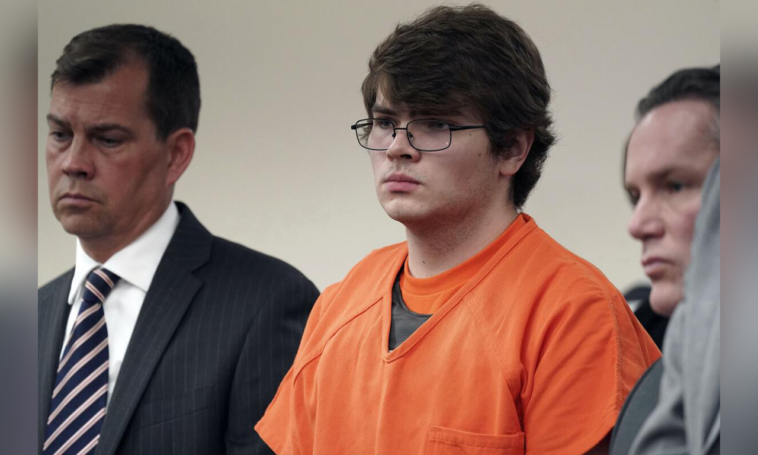In a Buffalo store shooting, white supremacist Payton Gendron killed 10 Black people. Federal prosecutors plan to execute him. Gendron, 20, is serving life without parole for the 2022 attack after pleading guilty to murder and hate-motivated domestic terrorism.
The Justice Department filed on Friday that the case justified the death punishment if convicted. In a federal hate crimes prosecution, the death sentence can be sought in New York, where the incident happened.
“Rather Instead of a lengthy and traumatic capital prosecution, the federal government should focus on the forces that enabled this terrible crime, such as easy access to deadly weapons and social media companies’ failure to moderate hateful rhetoric and images.” – Defense Attorney Sonya Zoghlin
The shooting was well planned, including the choosing of a Tops Friendly Market on the city’s predominately Black East Side area, according to western New York U.S. attorney Trini Ross. Ross claimed this was done to “maximize the number of Black victims.”
Victims’ relatives have different feelings about the death penalty. Mark Talley, whose mother Geraldine was slain, said, “It would have satisfied me more knowing he would have spent the rest of his life in prison being surrounded by the population of people he tried to kill.” Others, like Pamela Pritchett, whose mother Pearl Young was a victim, considered the tragedy’s lasting effects.
Despite the solemnity, attorney Terrence Connors said the family found relief in a ruling that provided some stability. However, defense counsel Sonya Zoghlin was disappointed, noting that Gendron was 18 when he committed the massacre.
Customers, the store security officer, and a church deacon who transported shoppers were among the 32–86-year-old casualties. The gunman livestreamed the massacre at the shop because of its location.
The attack rifle was tagged with racial obscenities, including “The Great Replacement,” a conspiracy theory about White people being replaced. Three injured people survived.
This death penalty request is important in the context of federal death penalty proceedings. Capital punishment opponents like President Biden have seen his administration handle such cases gingerly. Justice Department seeks the death sentence for the first time under Attorney General Merrick Garland.
Garland halted federal executions in 2021 to evaluate procedures. The embargo doesn’t prevent prosecutors from seeking death sentences, but the Justice Department has been selective. This case shows the severity of the charges and the community’s impact of the crime in the unusual federal death penalty case.
The death sentence is controversial, but this judgment sets the groundwork for a judicial process that will bring closure and renewed discussions about its position in the justice system.
The case raises questions about hate crime priority and societal causes that lead to such violence as it progresses. Defense counsel Sonya Zoghlin’s call to focus on these atrocities’ causes highlights the death penalty’s efficacy and morality issue.
Gendron, 18, was 18 at the massacre, adding to the issue. Some claim that juveniles may not fully understand their conduct and should be treated differently by the law. Zoghlin’s emphasis on Gendron’s youth suggests an appeal for rehabilitation rather than punishment.
Gendron livestreamed the attack, revealing hate crimes’ devastating effects on communities. The crime’s targeting of a grocery in a Black area highlights society’s racial tensions.
Some family members support the death penalty, but others, like Mark Talley, prefer life sentences. These viewpoints show the complicated emotions surrounding capital punishment and its perceived role in justice.
The case also shows how difficult it is to balance justice with victims’ families’ wishes. What punishment is appropriate after such a horrible conduct varies. The legal system must balance accountability with death penalty ethics.
No ruling can remove the victims’ loved ones’ agony and suffering, says families’ attorney Terrence Connors. Justice, whether through the death penalty or another sentencing, is a flawed attempt to deliver closure.
Gun regulation and social media’s role in extremism will resurface as the case progresses. Gendron’s rifle, inscribed with racial insults and driven by a conspiracy belief, illustrates the perils of hate and easy access to weapons.
The Justice Department’s extraordinary decision to seek the death sentence, despite President Biden’s opposition, shows the crime’s severity and unique circumstances. It makes the federal government reconsider capital punishment, especially when hate crimes affect communities so deeply.
The Buffalo supermarket massacre highlights the ongoing struggle to combat hate and extremism. Beyond legal consequences, broad initiatives to challenge ideas that drive violence and prevent future tragedies are needed.
The country follows the trial, wrestling with justice, retribution, and the lasting effects of a hate crime. This case will spark discussions about the death penalty’s role in fighting hate crimes and creating a more just and compassionate society.




Join the Community and Be a Part of the Conversation
You must be logged in or registered to post a comment.